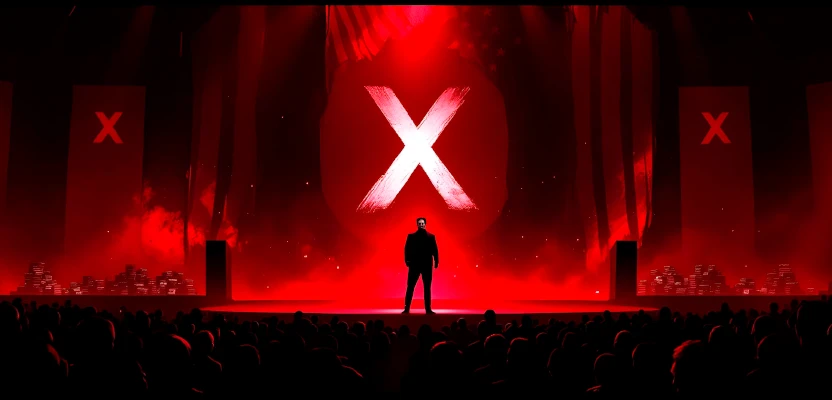
Introduction: The Unlikely Political Player
Elon Musk, a name synonymous with tech innovation, electric cars, and space exploration, has now entered a new arena—American politics. As the 2024 U.S. presidential election approaches, Musk’s support for Donald Trump has transcended typical endorsements. Once known for a degree of political neutrality, Musk is now a vocal advocate for Trump, using his social media platform, X, and vast financial resources to influence political narratives. Musk’s stance has drawn significant attention, not just due to his support for Trump, but because of his approach—unreserved, public, and well-funded.
Unlike other high-profile billionaires who often stay behind the scenes, Musk has taken a highly visible role, appearing at rallies, promoting Trump’s agenda, and directing his massive online following towards conservative causes. This active participation, unusual for a tech mogul, has raised questions about the balance between corporate power and democracy, making Musk one of the most scrutinized figures in the current election landscape.
The Power of Social Media: X Marks the Spot
Central to Musk’s influence is his ownership of X, formerly Twitter, a platform that now serves as a primary tool for his political messages. Through X, Musk has consistently promoted conservative views, critiqued the current administration, and spread narratives on topics ranging from voter fraud to immigration. With nearly 3.3 billion views on his election-related posts, his platform has become a digital powerhouse for conservative engagement. He frequently engages with pro-Trump accounts, amplifying their messages and reinforcing their views to a massive online audience.
Musk’s reach on X isn’t limited to direct posts. He often retweets and comments on conservative accounts, many of which push divisive narratives. For instance, Musk has echoed concerns about the integrity of mail-in ballots and voting machines—issues that have been widely studied and safeguarded by state and federal authorities. According to CBS News, over half of his posts on election topics contain misleading or exaggerated claims, sparking anxiety among voters and concern among officials working to preserve trust in the electoral process.
Massive Financial Backing: Musk’s Investment in the GOP
Musk’s political involvement goes beyond social media; his financial contributions have added substantial weight to his influence. By October 2024, he had invested over $132 million into the America PAC, a super PAC backing Trump. This significant funding has empowered conservative groups to launch targeted ad campaigns aimed at swaying key demographics in critical swing states. For example, targeted ads labeling Kamala Harris as overly "pro-Israeli" are circulated in Arab communities, while ads casting her as "pro-Palestinian" run in Jewish neighborhoods. This finely-tuned messaging, backed by Musk’s financial power, demonstrates his strategic approach to influencing voter perception.
Further, Musk’s America PAC has launched grassroots initiatives such as financial incentives for voters in swing states who support conservative constitutional amendments. These actions, unprecedented in scope and backed by vast sums, have drawn both support and concern, as some see this as Musk wielding undue influence in one of the world’s largest democracies.
Shaping Election Perceptions: A Focus on “Election Security”
One of the most striking elements of Musk’s influence is his impact on public perception around election security. By amplifying claims of voter fraud, Musk has contributed to a wave of skepticism about the integrity of the U.S. voting system. A frequent claim Musk shares is that Democrats are “importing illegal voters” to sway the election, a narrative closely related to the “great replacement theory,” which alleges that the Democratic Party aims to replace “native-born” voters with immigrants.
This rhetoric has sparked reactions from officials like Michigan Secretary of State Jocelyn Benson, who publicly corrected Musk’s claims about voter numbers in her state. Benson reported that Musk’s posts not only spread falsehoods but also led to increased threats against election workers, who are already under immense pressure during the election season. The consistent doubts Musk raises around mail-in ballots, voting machines, and voter eligibility are widely echoed in his network, fueling fears that, if Trump’s win is contested, Musk’s influence could incite post-election unrest.
What Musk Stands to Gain from Trump’s Win
Musk’s support for Trump is not purely ideological; there are tangible benefits at stake. Trump has already hinted at creating a new government position, “Secretary of Cost Optimization,” tailored specifically for Musk. This role would grant Musk influence over federal spending, potentially aligning government resources with his business interests, from space exploration to renewable energy.
Additionally, Trump’s win could bring Musk significant financial gains. A provision in the tax code allows high-ranking government officials to access substantial tax benefits, which could result in one of the largest individual tax breaks in U.S. history for Musk. Beyond tax relief, Musk’s businesses, including SpaceX, stand to benefit from favorable federal contracts, subsidies, and a potentially relaxed regulatory environment. With SpaceX already holding significant defense contracts, Musk’s government alignment could cement his position as a leading contractor for U.S. military and space endeavors.
Broader Implications for Democracy and Corporate Power
Elon Musk’s journey from tech CEO to political power broker has sparked debate about the role of corporate leaders in shaping democracy. His blend of social media influence, vast financial resources, and active political engagement sets a precedent for how billionaires can potentially shape political landscapes. His influence over election narratives, coupled with his public endorsements and targeted financial contributions, is reshaping expectations of how tech moguls might participate in politics.
Musk’s case highlights a tension between democratic values and concentrated private power. If wealthy individuals can channel resources toward specific candidates, spread targeted messages, and even affect public trust in the electoral system, what checks exist to balance their influence? While Musk’s support may benefit Trump’s campaign in the short term, it raises longer-term questions about the integrity of democratic processes in an era where individuals like Musk hold unprecedented power.
Conclusion: A New Era of Influence
Regardless of the election outcome, Elon Musk’s political involvement marks a pivotal moment in the intersection of technology, corporate power, and democracy. His contributions to Trump’s campaign, both in money and media, have set a new bar for political engagement by corporate figures. Whether his influence grows or recedes after the election, Musk’s role in shaping the current U.S. election cycle signals a broader shift in how elections may be influenced in the digital age.
As we approach election night, many wonder about the impact Musk’s actions could have on voter sentiment and trust. Should his influence continue, American democracy may see a restructuring in the relationship between corporate power and the public, underscoring the need for clear boundaries that preserve democratic integrity.





Comments 0